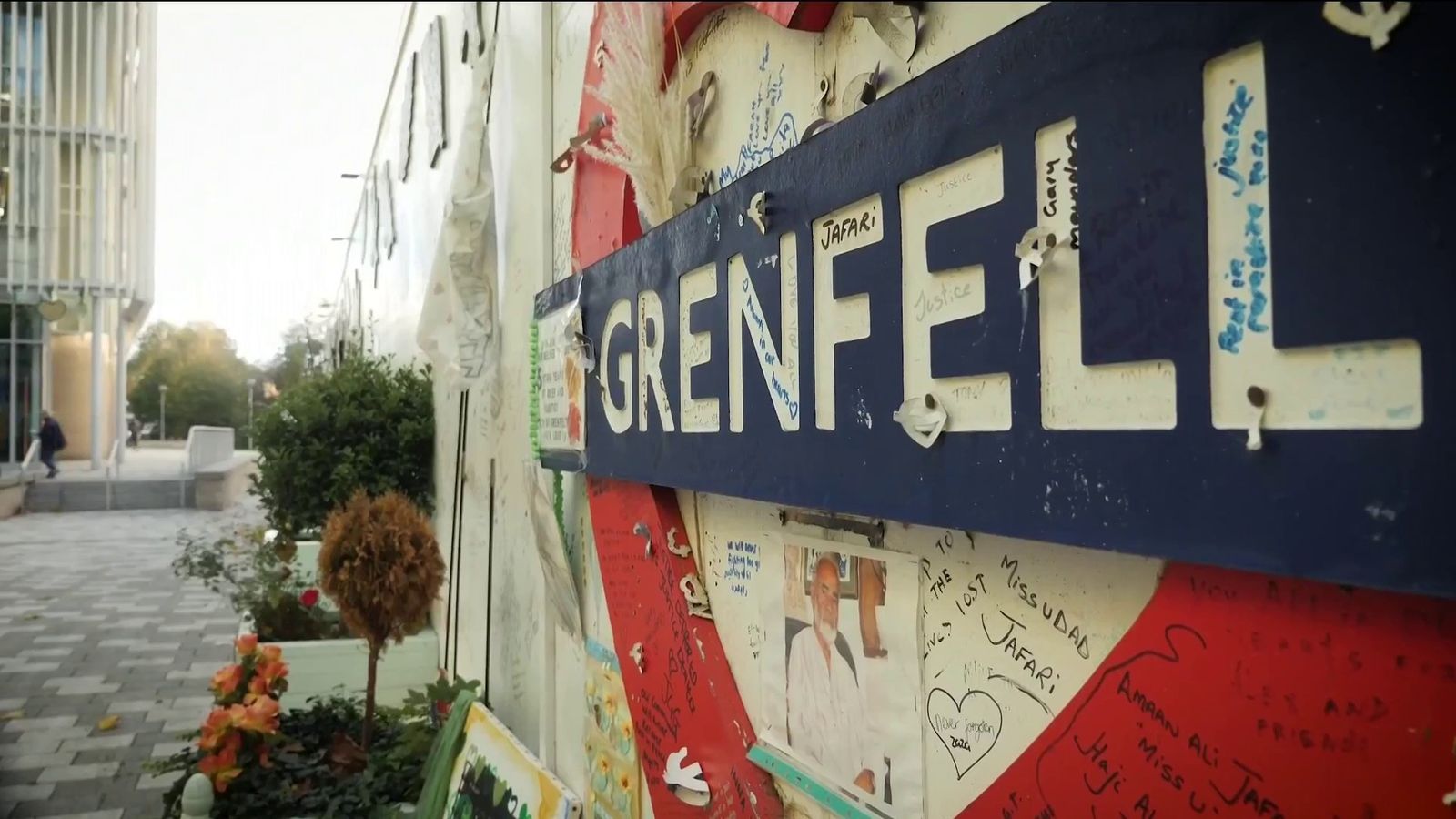Michael Gove has apologised to the families affected by the Grenfell Tower tragedy and admitted that “faulty and ambiguous” government guidance was part of the reason why the fire occurred.
Speaking to Sky News’ Sophy Ridge on Sunday programme, the housing secretary said it is “undeniably the case” that official guidance – which was widely seen to allow highly flammable cladding on tall buildings – was wrong.
However, he added that responsibility for the fire at the residential tower block in North Kensington, west London, in June 2017 – which killed 72 people – extends beyond the Conservative government.
Zahawi fired as Tory party chairman – politics latest
“I think that if you look at what happened to Grenfell, there were lots of factors but yes, government collectively has to take some responsibility,” Mr Gove said.
“It is undeniably the case that the system of building regulation was not right,” he told the programme.
Asked if he would apologise, Mr Gove said he “absolutely would”.
“I remember visiting the site just a couple of days after the fire and thinking that it was horrific that this had happened.
“The more that I discovered about the circumstances the more horrified I was.
“There were people in that building who had warned beforehand that they were in potential danger. The warnings were not heeded.”
“I’m the first, I hope, to acknowledge that we haven’t done right by the bereaved and the residents and survivors from Grenfell and that is one very, very important mission.
“But it’s also the case that there been people who have been effectively imprisoned in their own flats for too long.”
Please use Chrome browser for a more accessible video player
A public inquiry after the tragedy, chaired by Sir Martin Moore-Bick, is yet to deliver its final report.
But evidence submitted to the inquiry prompted Mr Gove to tell The Sunday Times: “There was a system of regulation that was faulty.
“The government did not think hard enough, or police effectively enough, the whole system of building safety. Undoubtedly.”
Read more:
Council’s ‘chaotic’ response was ‘severely damaging’ for survivors, inquiry hears
Grenfell survivor still ‘drives home’ to the ‘vertical village’ five years after the blaze
Almost 1,500 children treated for trauma over Grenfell disaster
On Monday Mr Gove will announce a six-week deadline for developers to sign a government contract to fix their unsafe towers – or be banned from the market.
He told Sky News that those who do not sign will face consequences.
“Well, we’re going to publish it tomorrow and we are going to give every developer a little window of six weeks during which we hope they will sign,” Mr Gove said.
“Some have already indicated that they will – and I don’t want to pre-empt the speculation about some of the developers who will – but all the indications are that the overwhelming majority will and those who don’t will face consequences if they don’t sign the contract.
“We’ll make sure that in effect they won’t be able to build anything more in future.”
It is understood that Mr Gove will use the so-called “responsible actor scheme”, to be established in the spring, to block such companies from getting planning or building control approval.
On Friday, Sky News learnt that major companies including Barratt Developments and Persimmon are preparing for the imminent signing of a legally-binding contract with the government that could ultimately cost the industry £5bn or more.
One executive said they expected the final contract to be signed and unveiled as soon as next week, although they cautioned that the timing remained fluid.
Last year, dozens of developers signed a pledge to fix buildings constructed since the early 1990s, with revisions to the deal with the government in recent weeks focusing on the scope of companies’ exposure.
The Grenfell inquiry heard many of the companies involved in the tragedy have failed to accept blame for their role in the events prior to the disaster.
The inquiry also heard from Jason Beer KC, for the department of levelling up, housing and communities, who said the department “apologises unreservedly” for its failure to recognise weaknesses in the regulatory system.







